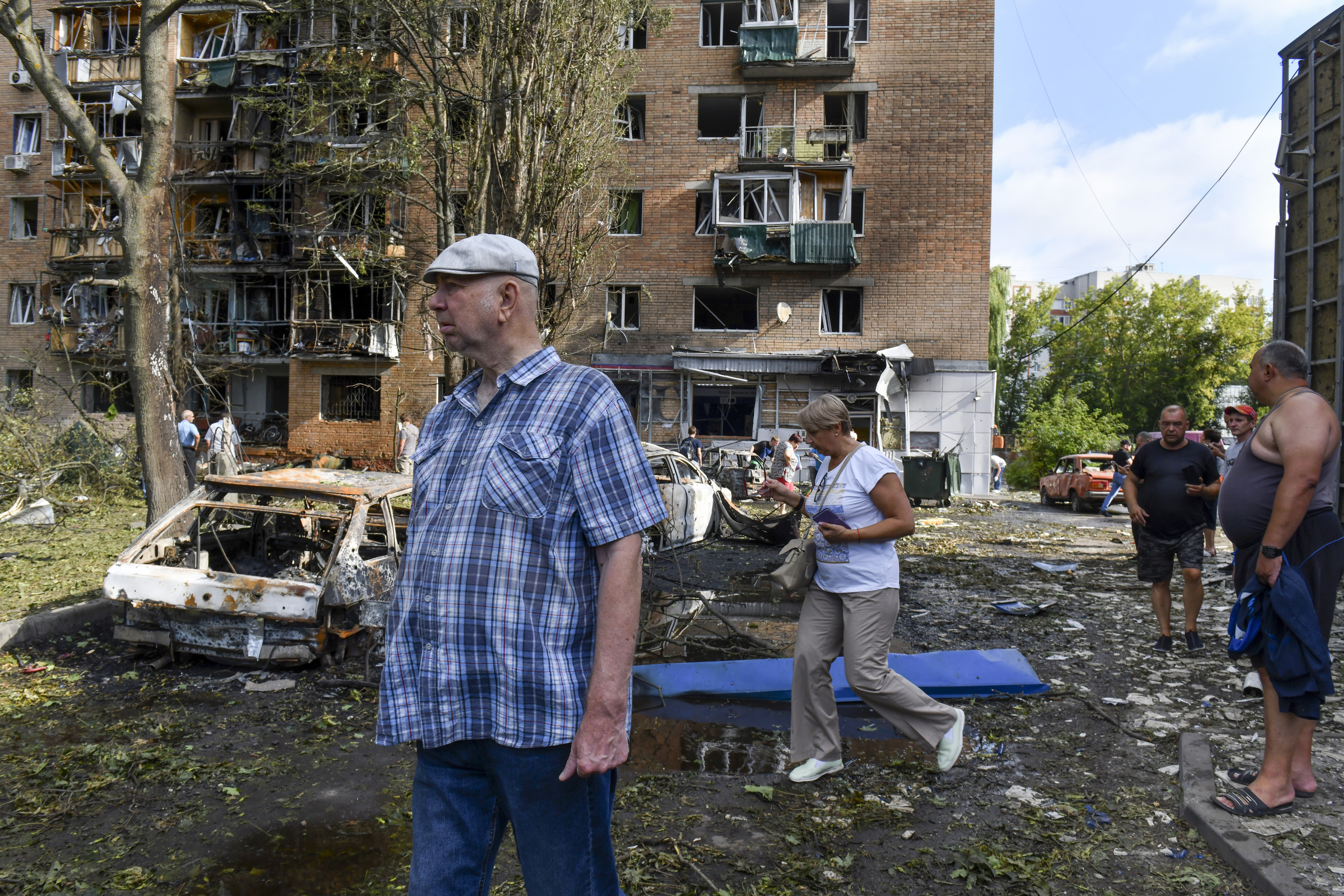An official in the Kursk border region of Russia on Monday urged more residents to evacuate due to the "very tense situation" in the area, where Russian forces are still scrambling to respond to a surprise Ukrainian attack after almost a week of fierce fighting.
Russia's emergency authorities say more than 76,000 people have fled their homes in areas of Kursk, where Ukrainian troops and armor poured across the border on Aug. 6, reportedly driving as deep as 30 kilometers (19 miles) into Russia and sowing alarm.
Ukrainian forces swiftly rolled into the town of Sudzha about 10 kilometers (6 miles) over the border after launching the attack. They reportedly still hold the western part of the town, which is the site of an important natural gas transit station.
The Ukrainian operation is taking place under tight secrecy, and its goals — especially whether Kyiv's forces aim to hold territory or are staging a raid — remain unclear. The stunning maneuver that caught the Kremlin's forces unawares counters Russia's unrelenting effort in recent months to punch through Ukrainian defenses at selected points along the front line in eastern Ukraine.
Russia has seen previous incursions into its territory during the nearly 2 1/2-year war, but the foray into the Kursk region marked the largest attack on its soil since World War II, embarrassing President Vladimir Putin and constituting a milestone in the hostilities.
The advance has delivered a blow to Putin's efforts to pretend that life in Russia has largely remained unaffected by the war. State propaganda has tried to play down the attack, emphasizing the authorities' efforts to help residents of the region and seeking to distract attention from the military's failure to prepare for the attack and quickly repel it.
Retired Gen. Andrei Gurulev, a member of the lower house of the Russian parliament, criticized the military for failing to properly protect the border.
He noted that while the military has set up minefields in the border region, it has failed to deploy enough troops to block enemy raids.
"Regrettably, the group of forces protecting the border didn't have its own intelligence assets," he said on his messaging app channel. "No one likes to see the truth in reports, everybody just wants to hear that all is good."
Pasi Paroinen, an analyst with the Finland-based Black Bird Group open-source intelligence agency, which monitors the war, said the toughest phase of Ukraine's incursion is likely to begin now as Russian reserves enter the fray.
He said that "if the Ukrainians are going to advance any further from where they are now, it's going to be a tough battle, unlike the opening moments of this offensive."
Ukraine's progress on Russian territory "is challenging the operational and strategic assumptions" of the Kremlin's forces, according to the Institute for the Study of War.
It could compel Russia to deploy more military assets to the long border between the two countries, the Washington-based think tank said in an assessment late Sunday.
It described the Russian forces responding to the incursion as "hastily assembled and disparate."
In other developments:
— The International Atomic Energy Agency said a fire near Ukraine's Russian-occupied Zaporizhzhia Nuclear Power Plant had "no impact" on the facility's safety.
Radiation levels are unchanged at what is one of the 10 biggest nuclear plants in the world, the U.N. body said.
Russia and Ukraine blamed each other for the blaze at a cooling tower outside the plant's perimeter, and the IAEA chief said late Sunday that the war continues to imperil the Zaporizhzhia facility.
"These reckless attacks endanger nuclear safety at the plant and increase the risk of a nuclear accident. They must stop now," Rafael Mariano Grossi said
